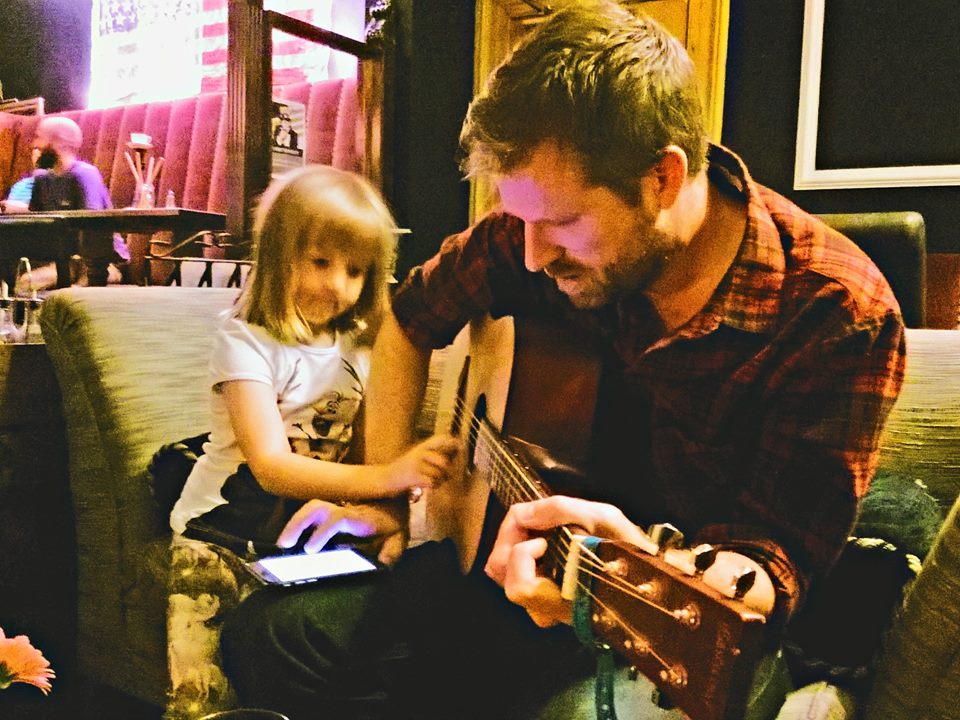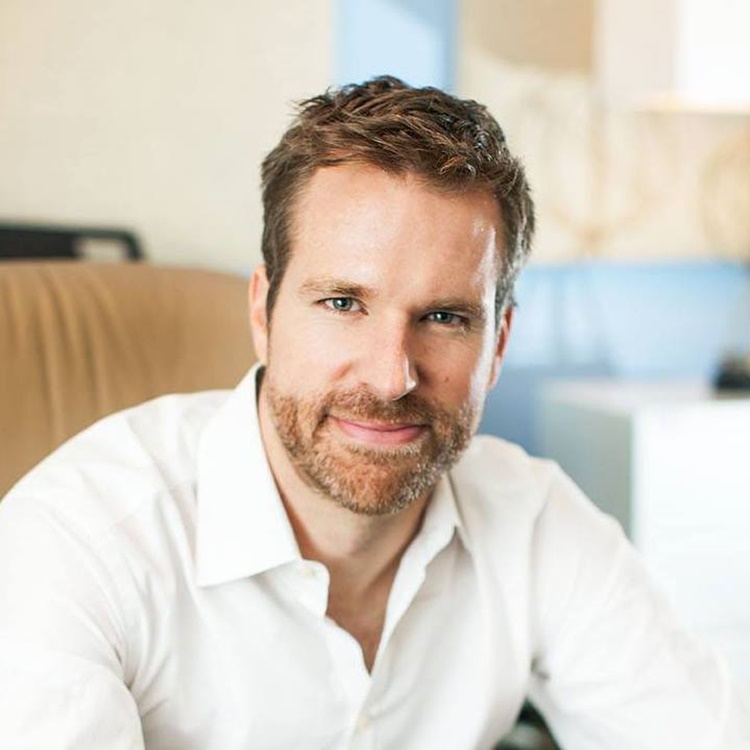Brian Harris had a bit of a shock when he moved to the Westman Islands, but says that it was a life altering experience which taught him a valuable lesson.
Imagine you’re going to be an exchange student for a whole year. You’re sixteen, you want to escape your small town in USA, and the world is your oyster. Brian Harris had briefly seen Iceland from the airport of Keflavík when he was a kid traveling between France and the US and thought it was so magical that it was his first choice when applying to become an exchange student. Little did he know that AFS Intercultural Programs would send him to an even smaller town than where he came from. Westman Islands, of the south coast. Oh, and we should mention: This is the year 1989, before Skype, Facebook or even emails, and Brian had accidentally just come out to his parents.

“It was a bit of a shock”, admits Brian, when recalling what his first reaction was when he first came to the Westman Islands, after having travelled from Charleston, Illinois to Iceland. And adds that it had a lot do with how small the culture was.
“Everything in Westman Islands was more homogeneous. Everybody was Icelandic and sort of Lutheran (laughs). Everybody had a similar pattern of life, same television, and same five types of cars. It was so much the same.
There are all these families that have lived there for hundreds of years and you can be Icelandic but still be seen as a foreigner there. Two of my friends, one who had moved there from the mainland and another one, Ása (Ásgerður Jóhannesdóttir) who had moved back there from the mainland, they both kind of felt like foreigners on the island. Which is why I think the three of us became close. There were only a few real foreigners on the island and I was the only exchange student. I was THE exchange student!”
Brian says that initially he imagined ending up in a place that was more instead of less cosmopolitan than where he came from. So for the first few months he was sad he wasn’t in Reykjavík. ”I think I was disappointed initially. But… to be clear, I would never trade that now because the experience was so much richer. The cultural experience was so much more immersive than if I had lived somewhere else. My host parents didn’t speak English so I simply had to learn Icelandic. In Reykjavík, I would probably have had a family that spoke English so I wouldn’t have had to learn Icelandic as well as I did. Of course, we didn’t have email or Skype. We had letters coming in and one five minute phone conversations a month with my family, since it was so expensive.”
“I was sixteen, I was sort of out, but not really. I had a boyfriend in the United States, but I also had a girlfriend.”
To be an exchange student in another country is difficult enough. But for Brian, it was probably more difficult because just a few days before leaving for Iceland, his parents had accidentally found out he was gay.
“I was sixteen. I was sort of out, but not really. I had a boyfriend in the United States, but I also had a girlfriend (laughs). My boyfriend knew about my girlfriend, but my girlfriend didn’t know about my boyfriend. He was three years older than me, had just come home from being an exchange student in Turkey. We had just confessed our love for one another, a real Romeo and Juliet moment (laughs).
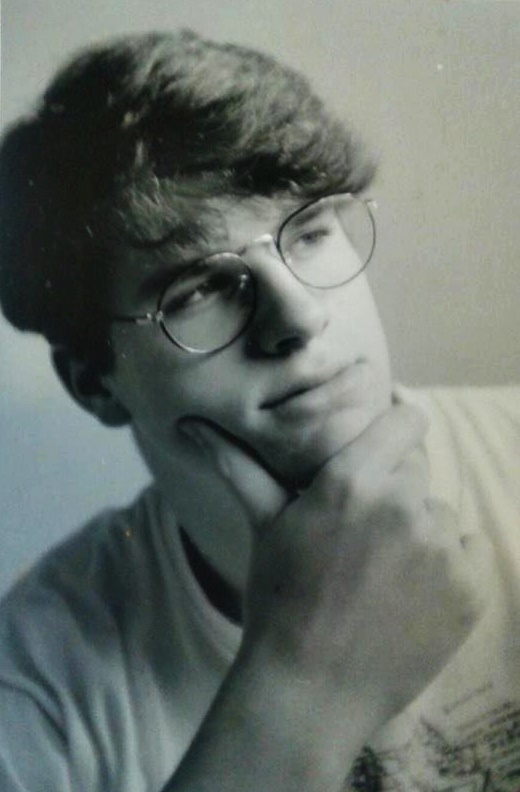
This was just a month and a half before I left for Iceland. I had just got my driver’s license, just got my braces off; you know, big things happening for a teenager in a short period of time. Then I went to France for a month where I hiked the Pyrenees and visited friends. While I was there my boyfriend wrote me a bunch of love letters, in aerogrammes, you know where you write on the paper but you fold it so it becomes the envelope itself.
When I got back from France I had four days before leaving for Iceland. Those four days were to spend time with all my friends and my family, and my girlfriend, and my boyfriend. My mother, supposedly, had to look for a letter so she went into my room and read all my mail, among them the love letters from my boyfriend. That’s how I came out to my parents. My mom was devastated, she was crying, telling me I was a freak. It was not pretty. And then it was time to leave for a whole year.”
So when Brian left for Iceland there had been no resolution between him and his parents and the situation was still very tense. “So you can imagine that these once a month phone calls for five minutes were strained,” Brian explains. “On top of that I was trying to negotiate all these feelings about my boyfriend who I couldn’t be honest about and my girlfriend, which I feel sorry for today.”
When Brian arrived in Iceland he was understandably still very upset and felt he couldn’t talk to anybody about his situation. “It was awful. It was so emotionally charged and made me feel particularly lonely, especially at first. I would only leave the island every couple of months, so for the most part I was on the tiny island the whole time. I didn’t expect to be quite so isolated, as I mentioned before I had hoped to stay in a place more cosmopolitan than where I came from.

“On top of that I was trying to negotiate all these feelings about my boyfriend who I couldn’t be honest about and my girlfriend, which I feel sorry for today.”
Brian explains that it took him a while to see how much heart people have there because everybody was really shy about opening up – until they had a drink (laughs.) Then he was surprised at how warm and open people could be.
“It was really strange for me, since I’m a very emotional and open person, to see how the gloves came off about their feelings as soon as people had a drink. I didn’t realize how much they cared because they’re so stoic. Now I understand that it doesn’t mean that they’re not loving, that they don’t really care, they just have a harder time showing it.
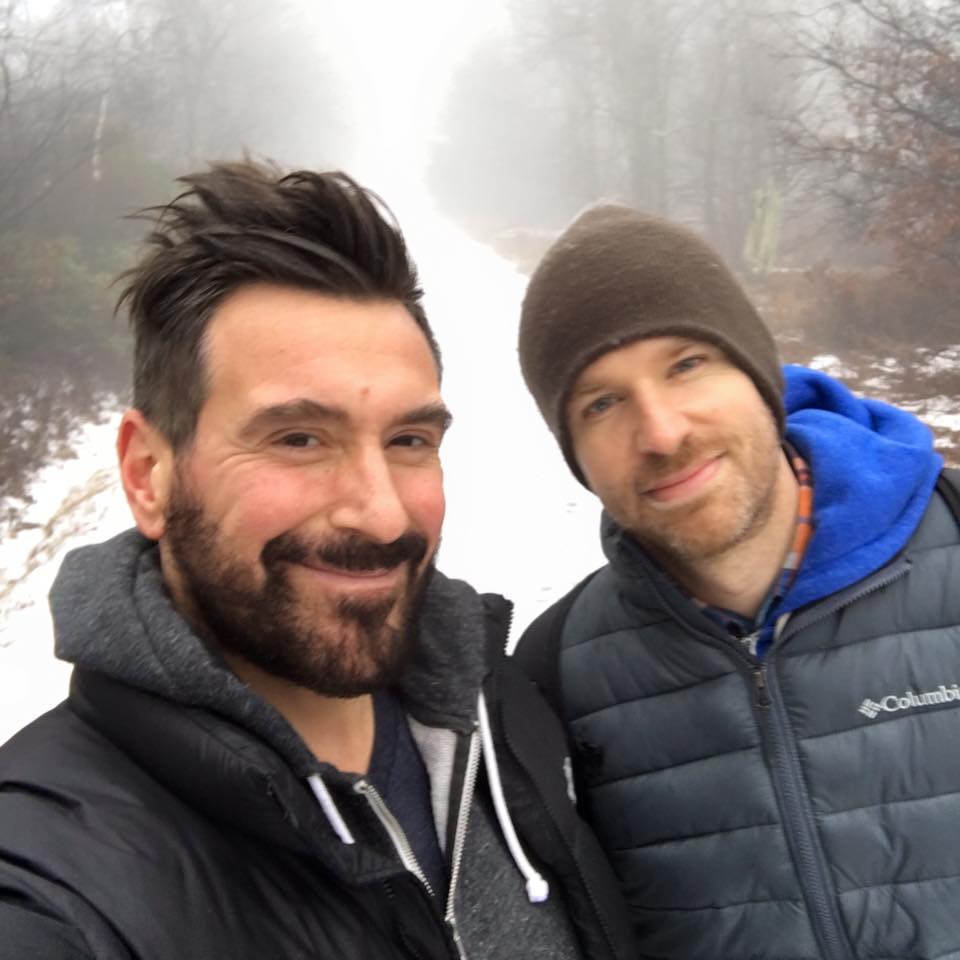
Even after I got to know people more it wasn’t until Spring I got to know people who were interested in having more emotional conversations. But I still didn’t feel like I could open up and say: “Oh my God, I’m having this really difficult emotional time,” because they would have been like: “Wait till I have a drink! (laughs)
Of course, all teenagers have a difficult time. We’re having this emotional whirlwind inside and we think no one else is going through any of it and we have no way of communicating these feelings, you don’t know how to say it, even to your best friends. That’s one of the most difficult part of being a teenager.”
So it took Brian a while to get used to his new surroundings but as time went by he really started to enjoy himself, and eleven months later when it was finally time to head back home he had mixed feelings about leaving Iceland. A part of him was excited to see his family and move back home. A part of him knew that he had had this amazing experience and he was sad to leave it behind.
“I have never felt a physical longing for a place like I have for the Westman Islands. Even years after I left I had these dreams of coming back to the island. It was always about the physical component of the island.
It’s really difficult to explain. I’ve never felt this before or since, my heart was drawn to the land. I didn’t expect to be so physically connected to the land and the landscape.”
Asked to look back and describe what it felt like to be an exchange student in the Westman Islands, meaning whether it might somehow have affected his perception of life, Brian pauses in a clear moment of reflection. “Yes, you could say that it taught me a valuable lesson,” he says. “You see, when I was growing up I was the younger of two children and I didn’t think of myself as being independent. But living in Iceland I had to be because everybody there is so independent.
For example when the main island erupted in 1973 the islanders had to pick up all their stuff and move to the mainland and when the eruption and its aftermath were over they came back with their shovels and cleared out the ash and just went: “OK, let’s start again!” It says so much about their resilience as a people.
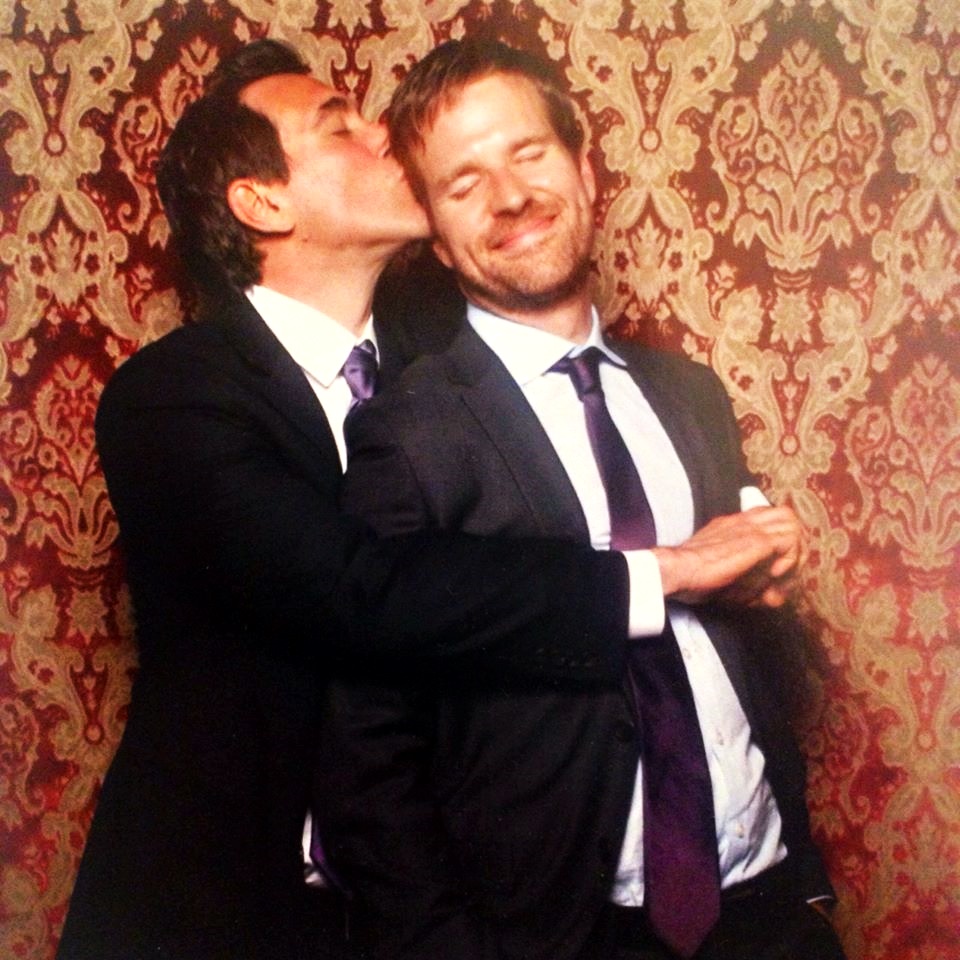
Same with the shipwrecks. Every few years there is a terrible shipwreck but the people have to pick up the pieces and move on. You move on because you have to, and you do. And that is something I really learned in Iceland. I learned so much about independence, resilience and survival.
My life would be very different if I had not learned those skills. Because a year after I got home to Charleston from Iceland my father and my brother left the family and moved into a religious cult, which was horrible and very traumatic. Later, when I was twenty-five, my mother committed suicide.
There is a point to this, which is that being in Iceland taught me so much about my own independence. I didn’t realize until many years later how powerful it was, but it taught me to stand on my own two feet. I don’t know how I would have managed to go through these difficult times in my life if it hadn’t been for my stay there.”
Brian has visited Iceland a few times since then. The first time he came back to the Westman Islands almost nine years had passed and he hadn’t been in contact with his host family for almost seven years. “But I knocked on their door and after a moment of surprise they invited me into their home, made my bed and said: “Help yourself to the food in the kitchen, make yourself at home as always”, and just treated me like a son coming home. It was a really beautiful learning moment for me.”
“I learned so much about independence, resilience and survival. My life would be very different if I had not learned those skills.”
But the Icelandic family weren’t the only ones surprised. When Brian entered their house he saw a photo of himself hanging on their wall. “I understood at that moment how loyal the people there are. Once they’ve taken you in, they’ve taken you in. If they have decided you are part of their people, you are part of their people. And it’s actually very rare to find that.”
He says that his Icelandic family has accepted him and his husband well.

“My host dad Svenni (Sveinn Halldórsson), who is like Popeye, loved my husband Pato when we visited them together six years ago. And my host brother, Beddi (Bernódus Sveinsson), also loves my husband – way more than he loves me (laughs). Pato is a bit more masculine than me so I think Beddi sees him as this typical Icelandic version of a masculine guy.
Pato was also an exchange student. He came from Argentina to New York, actually lived only ten blocks from where we are now. And we talk about how that were transformative experiences for both of us.”
Six years later, Brian is still in contact with his Icelandic family, especially with the help of Facebook. “I can track what’s going on (since Brian is still fluent in Icelandic!) and not only are my host brother and sister (Ágústa Berg Sveinsdóttir) my friends on Facebook, but also their children. So it’s nice to be able to see what’s going on in their lives. My host mother (Þóra Bernódusdóttir) died a few years ago and it was good to be able to grieve with them through Facebook, I didn’t feel as much alone being here in the US. She was a really wonderful presence in my life. She was loyal and loving and she was clear in her feelings. She did what she could do for her people.”
Asked if he plans to visit Westman Islands again in the near future, Brian says that if he’ll travel back to Iceland then he’ll definitely go to the islands. “I’m hoping in the next few years. Pato and I are trying to have a child and when that child is old enough to appreciate the experience I would love to visit Iceland.”
